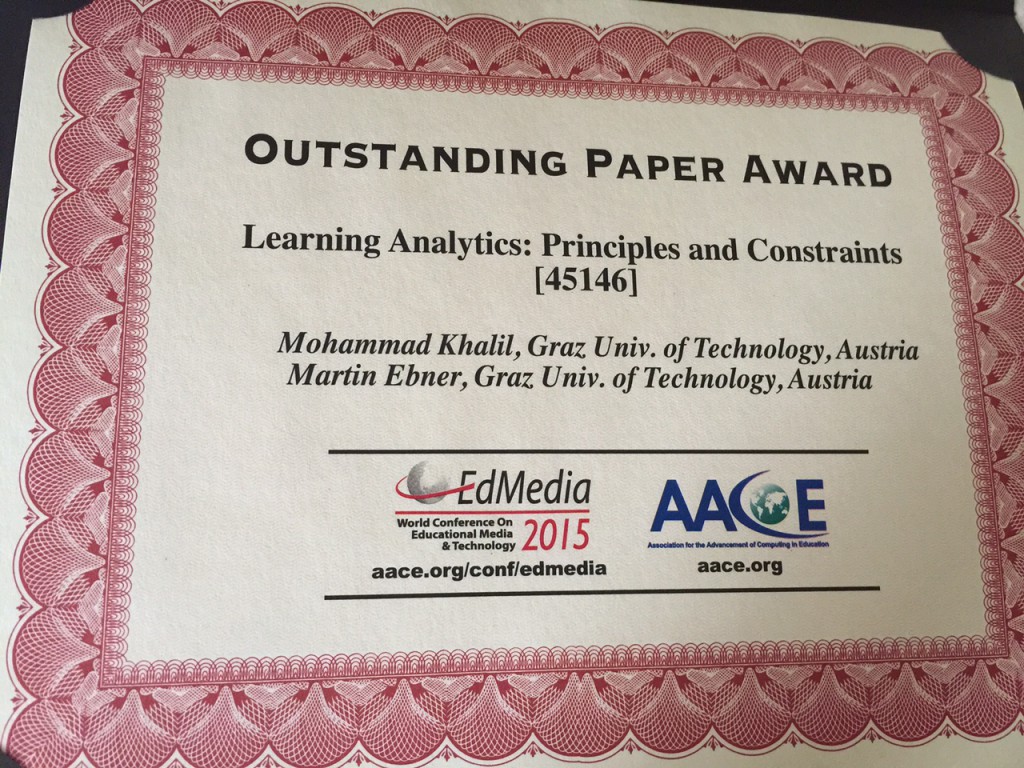Our chapter about „A Contribution to Collaborative Learning Using iPads for School Children“ as part of the book „Immersive Education“ got published.
Abstract:
Collaboration has a very positive effect on students’ learning experiences as well as their social interactions. Our research study aims towards enhancing the learning experience, stimulating communication and cooperative behavior to improve learning. Making use of recent technological advancements (tablets) and gaming as a motivational factor, a prototype application in form of a multiplayer learning game for iPads was designed and developed. In a face-to-face setting, connecting up to four devices, the players (learners) have to solve word puzzles in a collaborative way. Furthermore, a web-interface for teachers provides the possibility to create custom content as well as to receive feedback of the children’s performance. A first field study at two primary schools in Graz showed promising results for the learning behavior of school children.
[Link to draft version at ResearchGate]
Reference: Ebner, M., Kienleitner, B. (2015) A Contribution to Collaborative Learning Using iPads for School Children. In: Immersive Education. Ebner et al (Ed.). Springer. New York-Berlin-Heidelberg. pp 3-16




